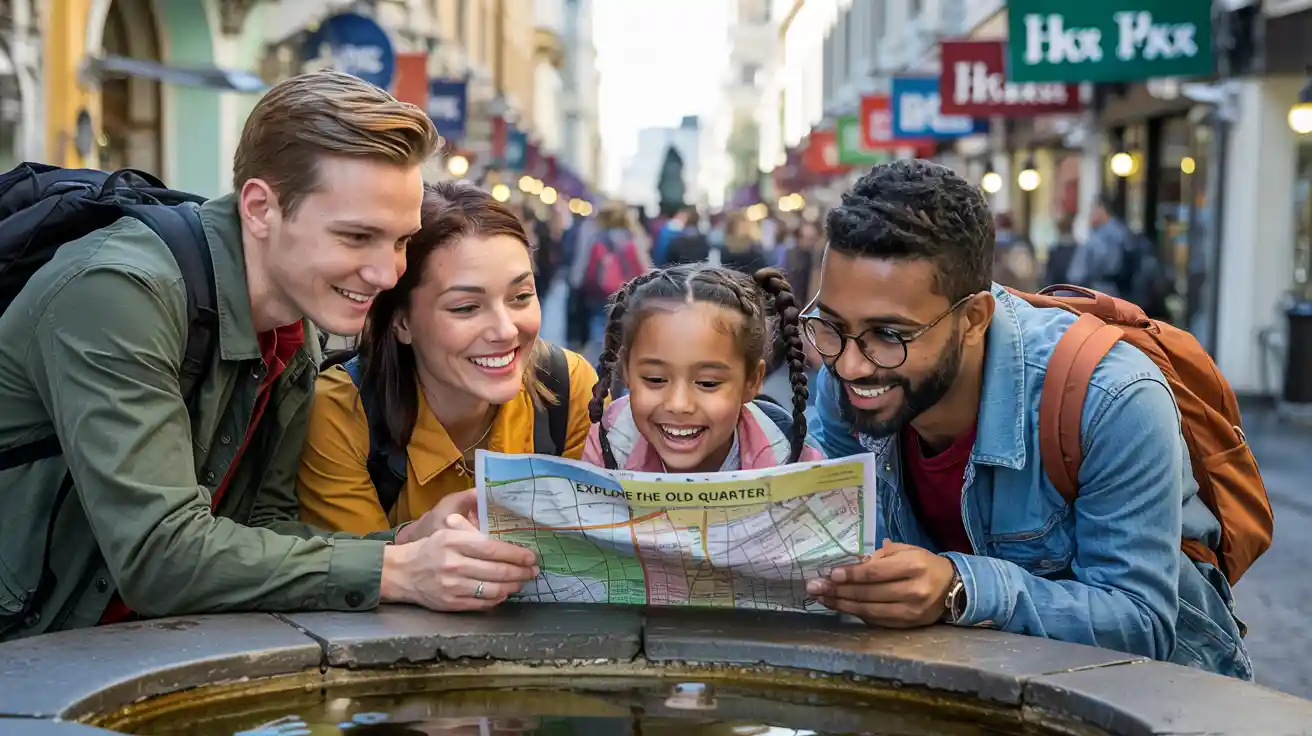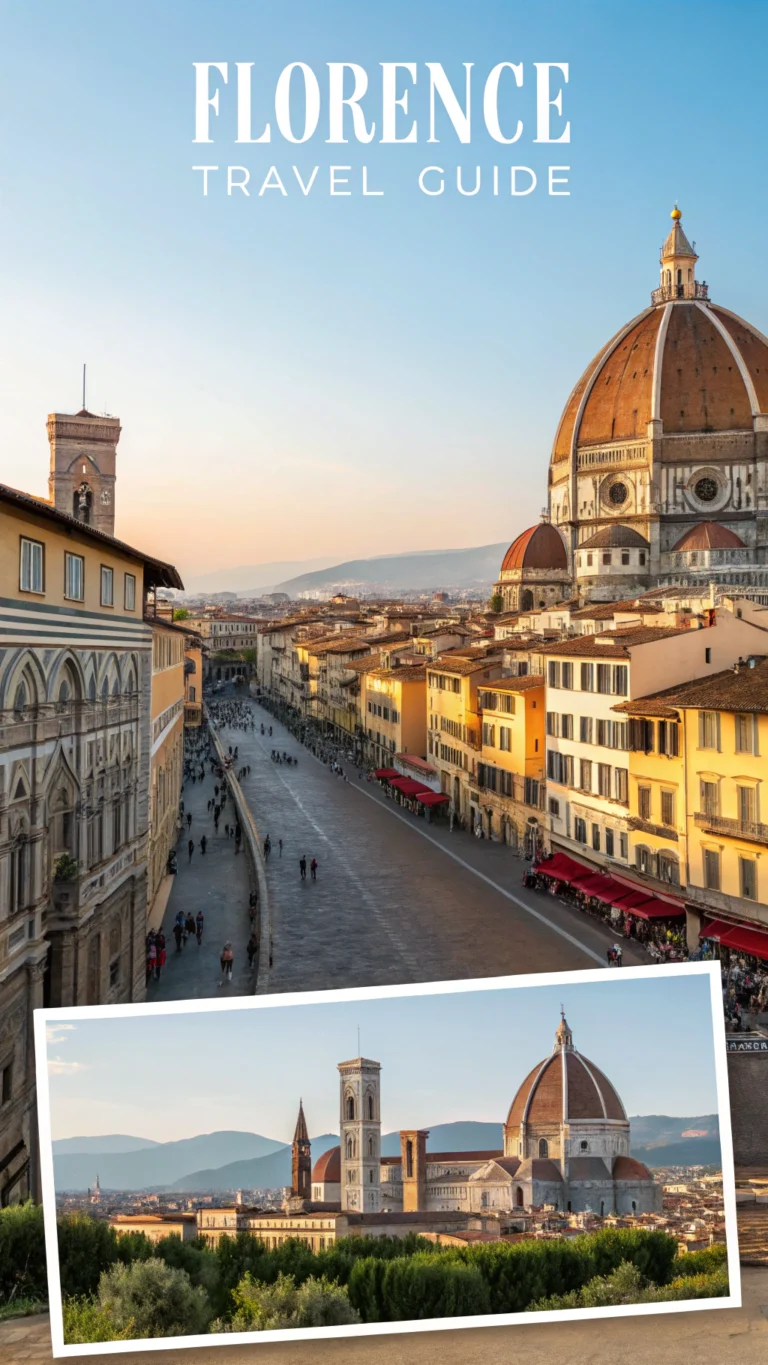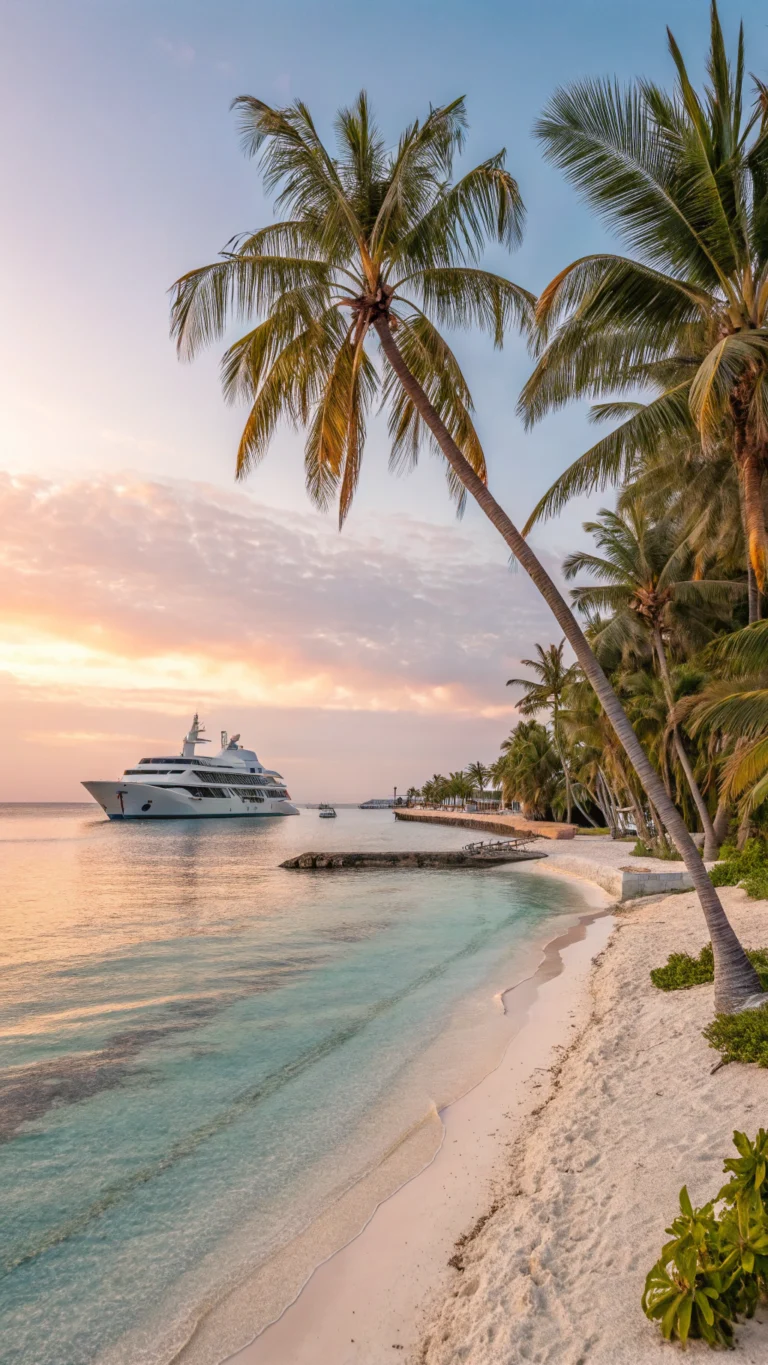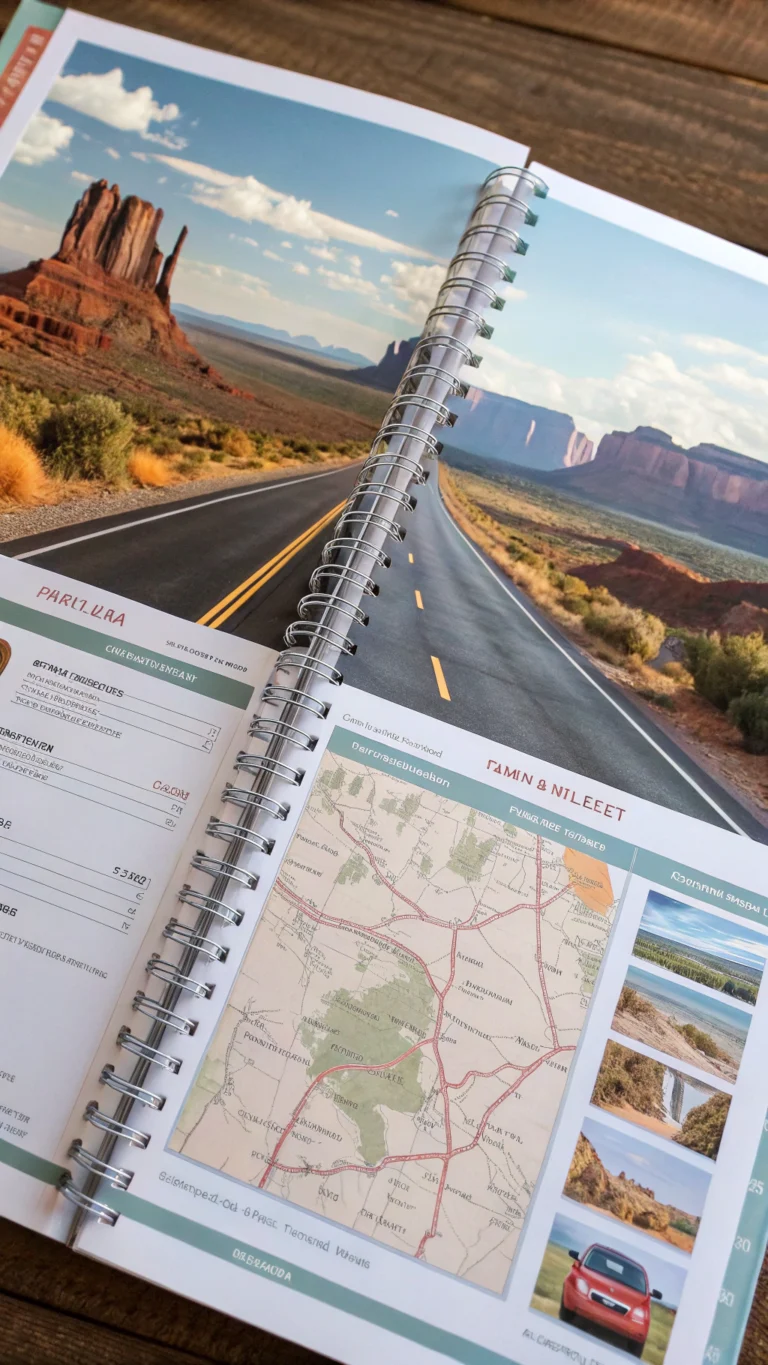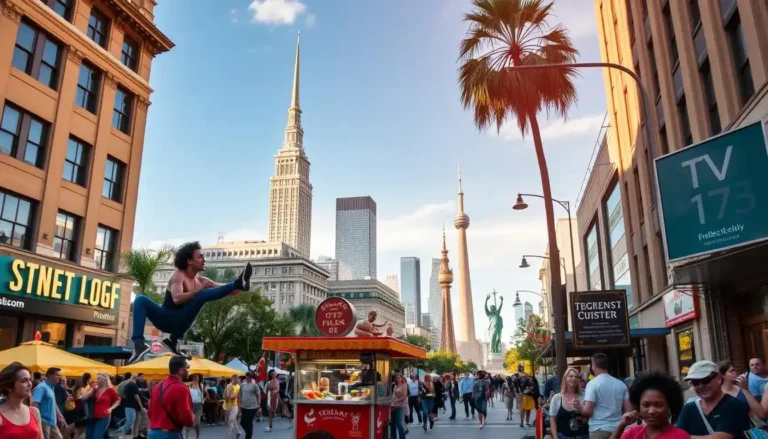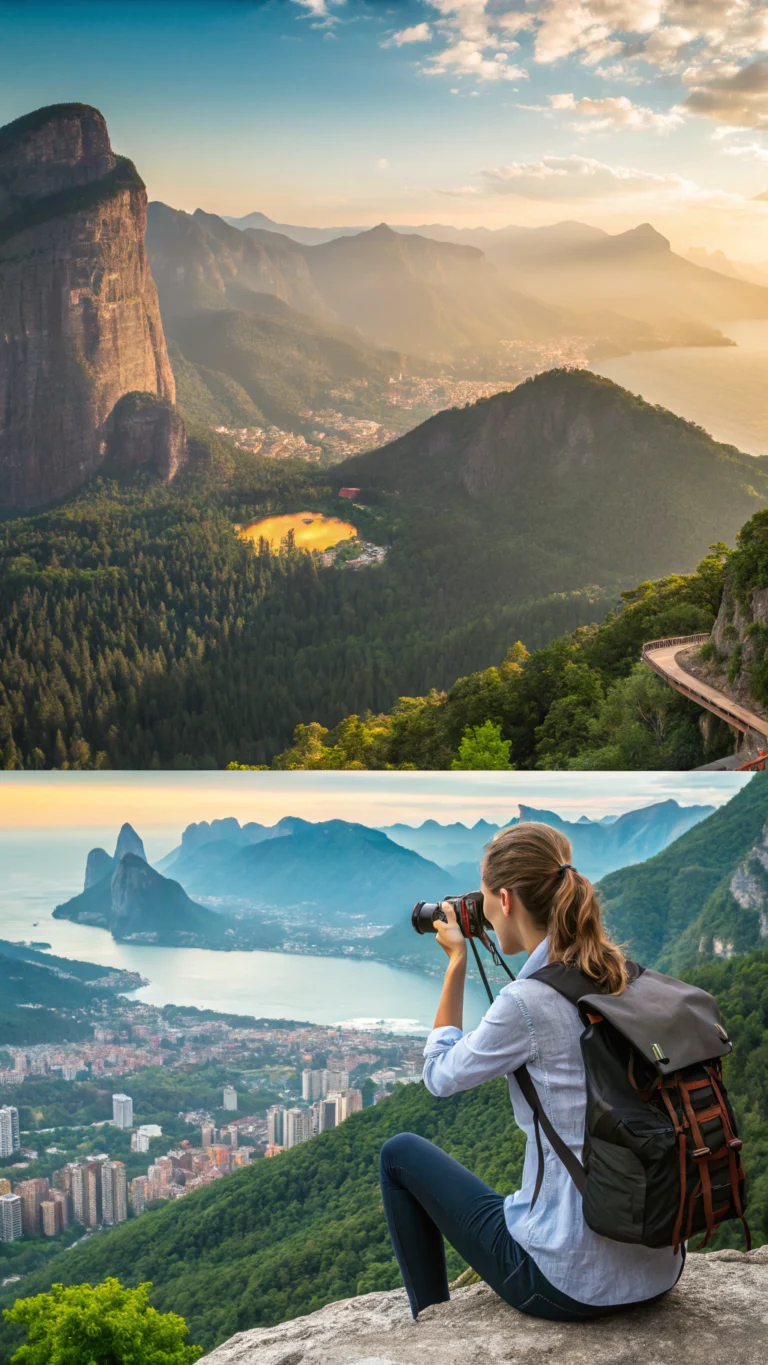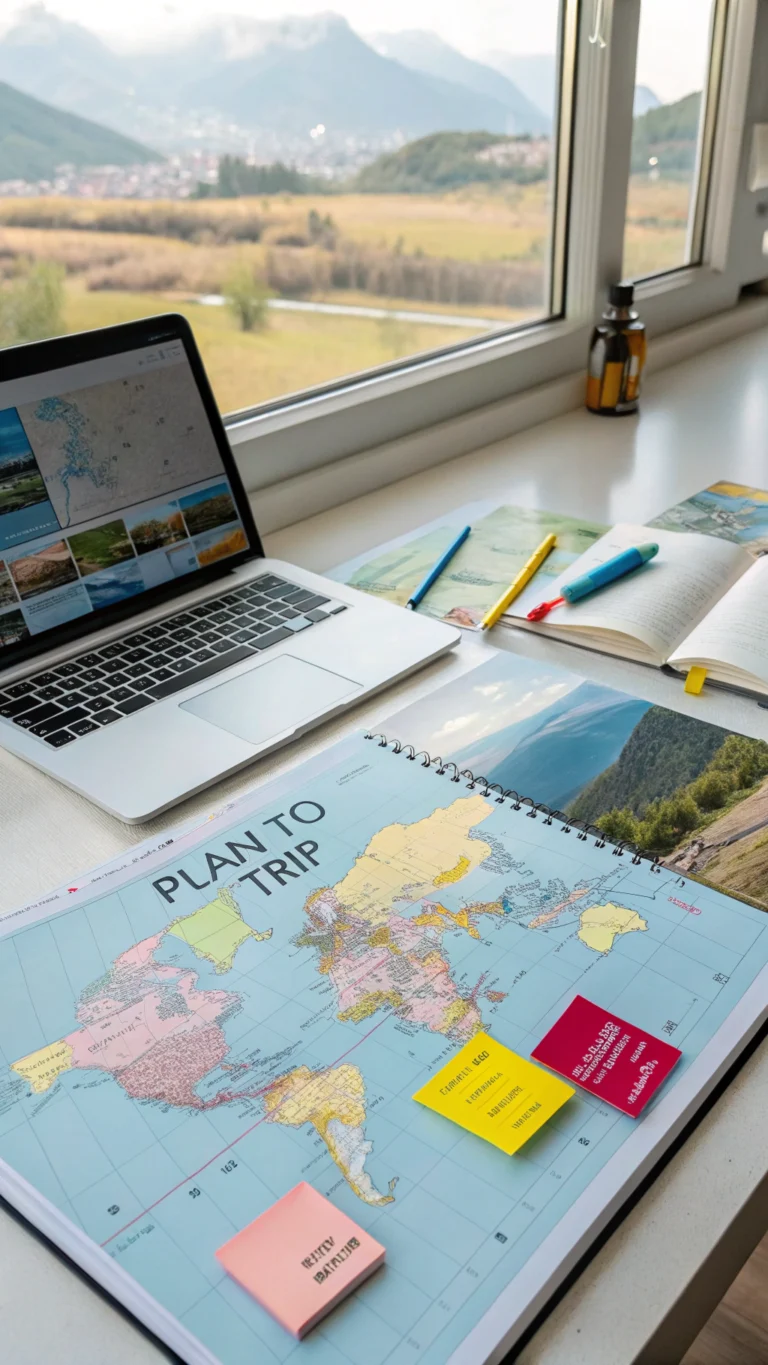New to Travel? 11 Tips for First-Time Travelers
Embarking on your first travel experience can be both thrilling and intimidating. As a first-time traveler, it’s natural to feel uncertain about how to prepare for your journey.
11 Tips for New Travelers
Effective travel planning is key to a smooth and enjoyable trip. With so many aspects to consider, from booking flights to packing essentials, it’s easy to feel overwhelmed. Our comprehensive guide provides travel tips to help you navigate the process with confidence.
Whether you’re exploring a new city or relaxing on a beach, being prepared is crucial to making the most of your adventure.
Key Takeaways
- Understand the importance of travel planning for a stress-free trip
- Learn how to effectively prepare for your journey as a first-time traveler
- Discover essential travel tips to enhance your travel experience
- Gain confidence in navigating unfamiliar destinations
- Make the most of your adventure with our expert advice
Getting Started: Why First-Time Travel is Life-Changing
Traveling for the first time is more than just visiting new places; it’s about stepping into a world of self-discovery and unforgettable experiences. As you prepare for your journey, understanding the benefits and setting the right expectations can make all the difference.
The Benefits of Stepping Outside Your Comfort Zone
Stepping outside your comfort zone is a significant aspect of first-time travel. It encourages personal growth, fosters resilience, and enhances your ability to adapt to new situations. By embracing the unknown, you open yourself up to a myriad of experiences that can shape your perspective on life.
For instance, trying new foods, engaging with locals, and navigating unfamiliar territories can be incredibly enriching. Here’s a simple breakdown of what stepping outside your comfort zone might look like:
| Activity | Comfort Zone | Outside Comfort Zone |
| Trying new foods | Sticking to familiar cuisine | Sampling local delicacies |
| Interacting with locals | Avoiding interactions | Engaging in conversations |
| Navigating | Following a guided tour | Using public transport or maps |
Setting Realistic Expectations for Your First Trip
It’s equally important to set realistic expectations for your first trip. Understanding that not everything will go as planned and being prepared for unexpected challenges can significantly reduce stress. Researching your destination, understanding local customs, and having a flexible itinerary can help manage your expectations.
By balancing the excitement of new experiences with a grounded understanding of what to expect, you can ensure a fulfilling and enjoyable first travel experience.
Choose the Perfect Destination for Your First Adventure
Your first adventure deserves a destination that is both exciting and accessible. With so many incredible places to explore, selecting the right one can be a daunting task.
When it comes to choosing a destination for your first trip, several factors come into play. You want a place that is beginner-friendly, with amenities and services catering to tourists.
Beginner-Friendly Countries and Cities
Some countries and cities stand out for their welcoming nature and ease of navigation for first-time travelers. Destinations like Japan, known for its blend of traditional and modern culture, or Barcelona, Spain, famous for its architecture and beaches, are excellent choices.
- Portugal: Known for its safety and friendly locals.
- New Zealand: Offers stunning landscapes and adventure activities.
- Iceland: Unique landscapes and the Northern Lights.
Considering Safety, Language, and Budget Factors
When choosing your destination, it’s crucial to consider safety considerations, language barriers, and budget constraints. Researching your destination thoroughly can help mitigate potential issues.
For instance, countries with a low crime rate and where English is widely spoken can make a big difference for first-time travelers. Additionally, having a clear understanding of your budget and how it aligns with the cost of living at your chosen destination is vital.
- Research your destination’s safety record.
- Understand the local culture and customs.
- Plan your budget accordingly.
By carefully considering these factors, you can ensure a smooth and enjoyable first travel experience.
Create a Flexible Itinerary That Balances Structure and Spontaneity
The key to a memorable travel experience lies in crafting an itinerary that is both flexible and well-planned. When traveling for the first time, it’s essential to strike a balance between having a structured plan and leaving room for spontaneity.
Planning Your Must-See Attractions
Start by identifying the top attractions you don’t want to miss. These could be famous landmarks, cultural experiences, or natural wonders. Prioritize them based on your interests and the time you have available. For instance, if you’re visiting Paris, the Eiffel Tower is likely a must-see attraction.
Building in Free Time and Buffer Days
While it’s tempting to pack your itinerary with activities, leaving some buffer days or free time can be incredibly beneficial. This allows you to relax, explore unexpected places, or simply enjoy the local culture without a rush. Consider allocating at least one day in your itinerary as a buffer.
| Activity | Duration | Flexibility |
| Visit Eiffel Tower | Half Day | Low |
| Explore Montmartre | Full Day | High |
| Seine River Cruise | Evening | Medium |
Using Travel Apps to Stay Organized
There are numerous travel apps designed to help you plan and manage your trip. Apps like TripIt and Google Trips can assist in organizing your itinerary, booking flights and hotels, and even navigating unfamiliar areas.
Edit
Delete
By combining a well-planned itinerary with the flexibility to adapt, you can ensure a travel experience that is both enjoyable and stress-free.
Master the Art of Packing Light
Packing light is an art that every traveler should master to make their journey smoother. Efficient packing not only reduces stress but also makes navigating through airports and train stations much easier.
Essential Items Every First-Time Traveler Needs
When it comes to packing, it’s crucial to prioritize. Essentials include versatile clothing that can be mixed and matched, a reliable travel adapter, and necessary toiletries. First-time travelers should also consider packing a portable charger and a travel-sized first-aid kit.
- Comfortable clothing and shoes
- Travel documents (passport, visa, ID)
- Electronics (phone, laptop, camera)
- Toiletries (toothbrush, toothpaste, etc.)
The 1-3-5 Packing Method
A useful strategy for packing is the 1-3-5 rule. This involves limiting yourself to 1 big item (like a coat), 3 medium items (such as sweaters), and 5 small items (like socks and undergarments). This method helps in maintaining a balanced and versatile wardrobe for your trip.
What to Leave Behind
Knowing what to leave behind is just as important as knowing what to pack. Avoid overpacking by leaving behind items that are easily available at your destination or that you can do without. Consider the activities you plan to do and pack accordingly.
| Item | To Pack | To Leave Behind |
| Clothing | Versatile, mix-and-match pieces | Formal wear unless necessary |
| Toiletries | Travel-sized essentials | Full-size bottles |
| Electronics | Phone, portable charger | Unnecessary gadgets |
By mastering the art of packing light, travelers can enjoy a more streamlined and stress-free journey. Remember, the key is to pack smart, not just pack less.
Prepare Important Documents and Digital Backups
One of the most important aspects of travel preparation involves gathering and organizing essential documents. Ensuring you have the right paperwork can save you from potential headaches during your trip.
Passport, Visa, and ID Requirements are fundamental to international travel. Check that your passport is valid for at least six months beyond your planned departure date. Research visa requirements for your destination, as some countries have specific regulations. Additionally, consider carrying a government-issued ID.
Passport, Visa, and ID Requirements
Verify the entry requirements for your destination country. Some nations require a visa, which can often be obtained upon arrival or must be applied for in advance. Make sure your ID is up to date and won’t expire during your trip.
Travel Insurance Basics
Travel insurance can provide peace of mind by covering unexpected medical or travel-related expenses. Look for policies that include trip cancellations, medical emergencies, and luggage loss or damage. Understand the terms and conditions before purchasing.
Creating Digital Copies of Essential Documents
In addition to carrying physical copies of your documents, create digital backups. Scan your passport, visa, ID, and travel insurance documents, and store them securely online or via a cloud service. This ensures you can access them if the originals are lost or stolen.
- Passport
- Visa (if required)
- Government-issued ID
- Travel insurance documents
- Health insurance card (if applicable)
By having these documents in order and backed up digitally, you’ll be well-prepared for a stress-free journey.
Budget Wisely: Managing Money Before and During Your Trip
A well-planned budget ensures that your travel experience is enjoyable and not marred by financial stress. Effective money management is crucial for making the most out of your trip.
To start, consider setting up travel-friendly banking arrangements. This includes notifying your bank of your travel plans to avoid any transactions being flagged as suspicious. You should also look into getting a debit or credit card that doesn’t charge foreign transaction fees.
Setting Up Travel-Friendly Banking
Having the right banking setup can save you money and hassle. Look for banks or cards that offer low or no fees for international transactions. Additionally, consider having a backup card in case your primary card is lost or stolen.
Daily Spending Plans That Work
Creating a daily spending plan helps you stick to your budget. Research your destination to estimate costs for meals, transportation, and activities. You can use travel apps or spreadsheets to track your expenses in real-time.
It’s also wise to have some local currency for when you arrive at your destination. This can help you avoid high ATM fees or unfavorable exchange rates.
Emergency Fund Strategies
An emergency fund is a safety net for unexpected expenses. Consider setting aside a portion of your travel budget for emergencies. This could be for medical issues, travel disruptions, or other unforeseen circumstances.
By having a solid financial plan, you can enjoy your trip with peace of mind, knowing you’re prepared for any situation.
budgeting for travel
Navigate Transportation Like a Pro
Transportation can often be a significant concern for travelers, but with the right strategies, it can become a breeze. Whether you’re flying across the globe or navigating a new city, understanding your transportation options is key to a stress-free journey.
Airport Tips for Stress-Free Flying
Air travel can be daunting, especially for first-time travelers. To make your flying experience smoother, consider arriving at the airport with plenty of time to spare. Check-in online and take advantage of TSA Precheck or similar programs if available. Familiarize yourself with the airport’s layout and know the location of your gate in advance.
Understanding Local Transit Options
Once you arrive at your destination, understanding the local transit options can greatly enhance your travel experience. Research the local transportation systems, such as buses, trains, or bike-sharing programs, before you arrive. Many cities offer tourist-friendly passes that can simplify your travel. Don’t hesitate to ask locals or tourist information centers for advice on getting around.
When to Use Rideshares vs. Public Transportation
Deciding between rideshares and public transportation depends on several factors, including cost, convenience, and your destination. Rideshares offer door-to-door service and can be more convenient, especially at night or in areas with limited public transit. On the other hand, public transportation is often more budget-friendly and provides a more authentic local experience. Weigh your options based on your priorities and the specifics of your trip.
By mastering these transportation tips, you’ll be well on your way to navigating like a pro, making your travel experience more enjoyable and stress-free.
Stay Safe While Maximizing Your Experience
Maximizing your travel experience requires a balance between exploring new places and staying safe. As you venture into unfamiliar territories, being aware of potential safety concerns can significantly enhance your journey.
Researching Safety Concerns at Your Destination
Before traveling, it’s crucial to research your destination’s safety landscape. Look for government travel advisories, local news, and traveler reviews to understand potential risks. This proactive step helps you prepare and make informed decisions during your trip.
Avoiding Common Tourist Scams
Tourist scams can be a significant concern in popular destinations. Be cautious of overly friendly locals who might be trying to distract you, and always be wary of deals that seem too good to be true. Keeping your belongings secure and being mindful of your surroundings can help you avoid common scams.
Trusting Your Instincts
One of the most effective safety measures is trusting your instincts. If a situation feels uncomfortable or suspicious, it’s best to remove yourself from it. Your intuition is a powerful tool in keeping you safe while traveling.
| Safety Tip | Description | Benefit |
| Research Destination | Understand local safety concerns and travel advisories | Better preparedness for potential risks |
| Be Aware of Scams | Recognize and avoid common tourist scams | Reduced risk of financial loss or trouble |
| Trust Your Instincts | Listen to your inner voice about suspicious situations | Enhanced personal safety and security |
By taking these safety precautions, you can enjoy a more secure and fulfilling travel experience. Remember, safety is not about being overly cautious but being prepared and aware of your surroundings.
Connect with Locals for Authentic Experiences
One of the most rewarding aspects of travel is engaging with the local community. By doing so, travelers can gain a deeper understanding of the culture and create meaningful connections.
To start, breaking through language barriers is crucial. While it may seem daunting, learning a few key phrases in the local language can go a long way. Simple expressions like “hello,” “thank you,” and “where is…” can significantly enhance interactions with locals.
Breaking Through Language Barriers
Utilizing translation apps and carrying a phrasebook can also be helpful. Moreover, engaging with locals who speak your language can provide valuable insights and recommendations.
| Language | Common Phrases | Useful Apps |
| Spanish | “Hola” (Hello), “Gracias” (Thank you) | Google Translate |
| French | “Bonjour” (Hello), “Merci” (Thank you) | iTranslate |
| Italian | “Ciao” (Hello/Goodbye), “Per favore” (Please) | Microsoft Translator |
Finding Local Events and Hidden Gems
Discovering local events and hidden gems can be a thrilling experience. Researching online, asking locals, or using travel apps can uncover unique opportunities to engage with the local culture.
local cultural engagement
Respectful Cultural Engagement
When engaging with different cultures, it’s essential to be respectful. Understanding local customs, dressing appropriately, and being mindful of cultural norms can help avoid unintended offense.
By embracing these practices, travelers can foster positive interactions and create lasting memories. Local experiences become truly enriching when approached with an open mind and a willingness to learn.
Embrace the Unexpected: 11 Tips for New Travelers to Handle Challenges
Embracing the unexpected is a crucial part of the travel experience, and with these tips, new travelers can learn to navigate challenges with confidence. Traveling is an adventure that can be both thrilling and unpredictable.
When faced with travel mishaps, staying calm and having a plan can make all the difference. Whether it’s a delayed flight or a lost passport, being prepared for the unexpected can help minimize stress.
Dealing with Travel Mishaps and Delays
One of the most common challenges travelers face is dealing with delays and disruptions. To handle these situations effectively, it’s essential to stay informed and have a backup plan. This might involve checking with your airline for updates or having a list of alternative flights.
Additionally, having travel insurance can provide peace of mind and financial protection against unforeseen circumstances.
Overcoming Homesickness and Travel Anxiety
For many travelers, especially those traveling alone, homesickness and anxiety can be significant challenges. To overcome these feelings, it’s helpful to stay connected with loved ones back home through regular updates and to keep yourself occupied with local activities.
Engaging with the local culture and meeting new people can also help alleviate feelings of loneliness and make your travel experience more enjoyable.
Finding Joy in Unplanned Adventures
Sometimes, the best experiences come from unplanned adventures. Being open to new experiences and stepping out of your comfort zone can lead to some of the most memorable moments of your trip.
Whether it’s trying a new food, visiting an unexpected attraction, or taking a spontaneous detour, embracing the unknown can enrich your travel experience and create lasting memories.
Capture Memories Without Missing the Moment
One of the biggest challenges travelers face is balancing the desire to capture memories with the need to be present in the moment. As you navigate through new destinations, it’s easy to get caught up in taking the perfect photo, but it’s equally important to remember to enjoy the experience.
Balancing Photography with Being Present
To strike a balance, consider setting a limit on the number of photos you take each day. This encourages you to be more mindful of your surroundings and appreciate the moment. Additionally, putting your camera away during meals or when interacting with locals can help you stay present.
Creative Ways to Document Your Journey
Beyond photography, there are many creative ways to document your travels. Consider keeping a travel journal to record your thoughts, feelings, and experiences. You can also collect small mementos like ticket stubs, postcards, or coins to create a memory box.
Sharing Your Experiences Meaningfully
When sharing your travel experiences on social media, consider the impact of your posts. Instead of just posting photos, share stories about your encounters with locals, the food you enjoyed, or the challenges you overcame. This not only provides context to your photos but also inspires others to travel mindfully.
| Method | Description | Benefits |
| Journaling | Recording thoughts and experiences in a journal | Reflects on the journey, captures emotions |
| Photography | Capturing moments and scenery | Preserves memories, tells a story |
| Mementos Collection | Gathering small souvenirs | Tangible memories, nostalgic value |
Conclusion: Taking the First Step on Your Travel Journey
Embarking on your first travel adventure can be both thrilling and intimidating, but with the right mindset and preparation, it can be a life-changing experience. As discussed throughout this article, being prepared, flexible, and open to new experiences are key to a successful trip.
By choosing the right destination, creating a flexible itinerary, packing wisely, and staying safe, you’re laying the groundwork for a memorable travel journey. Remember, the first steps you take towards traveling can lead to a lifetime of exploration and personal growth.
As you prepare to take your first steps on your travel journey, keep in mind that it’s okay to start small and be uncertain. Every experienced traveler began with a single step. With the tips and insights provided, you’re now better equipped to navigate the world with confidence and curiosity.
FAQ
What are the essential documents required for first-time travelers?
First-time travelers need a valid passport, visa (if required), and government-issued ID. It’s also recommended to make digital copies of these documents and leave a copy with a trusted friend or family member.
How do I choose a beginner-friendly destination for my first trip?
Consider factors such as safety, language, and budget when selecting a destination. Countries like Japan, Italy, and Costa Rica are popular among first-time travelers due to their welcoming atmosphere and tourist infrastructure.
What’s the best way to pack lightly for a trip?
Use the 1-3-5 packing method: 1 coat or jacket, 3 tops or shirts, and 5 bottoms or pants. This will help you pack essentials while avoiding overpacking. Don’t forget to check the weather forecast before your trip to ensure you’re prepared.
How can I stay safe while traveling?
Research your destination beforehand, stay aware of your surroundings, and trust your instincts. Avoid carrying large amounts of cash and keep an eye on your belongings, especially in crowded areas.
What’s the best way to manage my finances while traveling?
Set up travel-friendly banking, create a daily spending plan, and consider having an emergency fund. Inform your bank of your travel plans to avoid any transactions being flagged as suspicious.
How can I navigate transportation at my destination?
Research local transit options, such as public transportation or ride-sharing services, and consider purchasing a transit card or SIM card with data. You can also use travel apps like Google Maps to help navigate.
What’s the best way to connect with locals during my trip?
Learn a few basic phrases in the local language, attend local events, and try to engage with the community. You can also use social media or travel apps to find local guides or join group tours.
How can I handle unexpected challenges during my trip?
Stay calm, be flexible, and have a backup plan. Research potential risks and challenges at your destination beforehand and consider purchasing travel insurance to cover unexpected expenses.
What’s the best way to capture memories without missing the moment?
Balance photography with being present in the moment. Consider setting a specific time for taking photos, and use creative ways to document your journey, such as journaling or sketching.
How can I overcome language barriers while traveling?
Learn basic phrases in the local language, carry a phrasebook or use a translation app, and consider hiring a local guide or joining a group tour to help navigate language barriers.
What’s the best way to share my travel experiences with others?
Share your experiences through social media, blogging, or writing postcards. Consider sharing tips and recommendations with others, and be mindful of your audience and the information you share.

